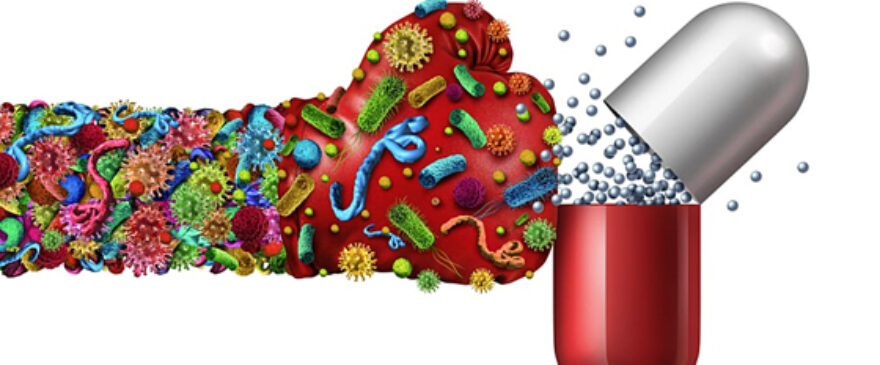
Antimicrobial resistance (AMR) occurs when bacteria, viruses, fungi and parasites change over time and no longer respond to medicines, making infections harder to treat and increasing the risk of disease spread, severe illness and death. As a result of drug resistance, antibiotics and other antimicrobial medicines become ineffective and infections become increasingly difficult or impossible to treat.
A global action plan to tackle the growing problem of resistance to antibiotics and other antimicrobial medicines was endorsed at the Sixty-eighth World Health Assembly in May 2015. One of the key objectives of the plan is to improve awareness and understanding of AMR through effective communication, education and training.
World Antimicrobial Awareness Week (WAAW) is a global campaign that is celebrated annually and aims to improve awareness and understanding of AMR and encourage best practices
for using antimicrobials responsibly among the public and health and care workers, to avoid further emergence and spread of drug-resistant infections. Antibiotic resistance is a global threat, taking antibiotics when you do not need them can mean they may not work for you in the future.
Antibiotics will not work for viral infections such as colds and flu, and most coughs and many illnesses get better on their own without using antibiotics. If you require antibiotics, make sure you take the full course and do not share your antibiotics with others. In addition, following/practicing good standards of infection prevention will prevent the spread of infections.
For further information
World Antimicrobial Awareness Week
Resources toolkit for healthcare professionals in England:
World Antimicrobial Awareness Week (WAAW) and European Antibiotic Awareness Day (EAAD) – GOV.UK
The fight against antimicrobial resistance: progress and challenges
Will you become an antibiotic guardian?
Your support is needed and we encourage you to display the posters below within your settings.